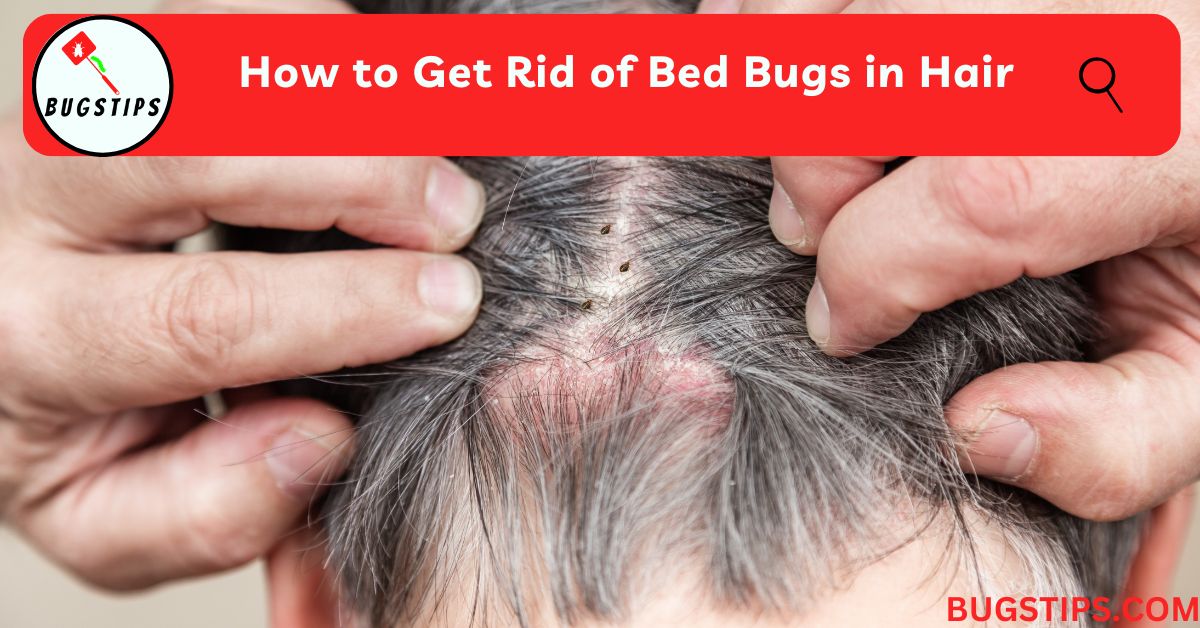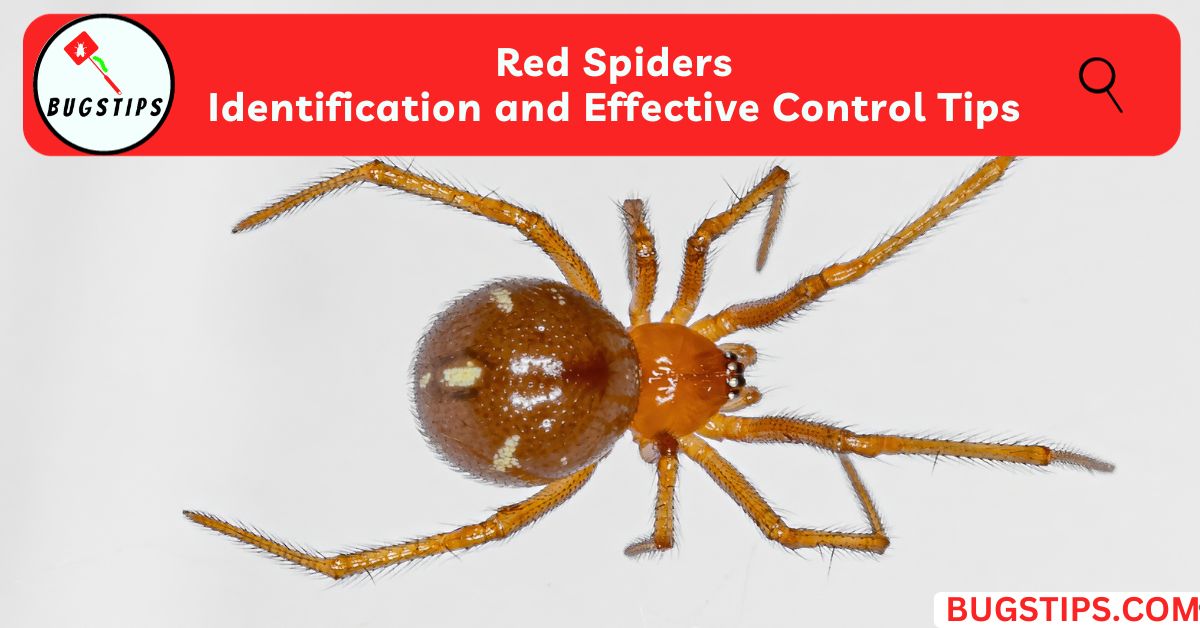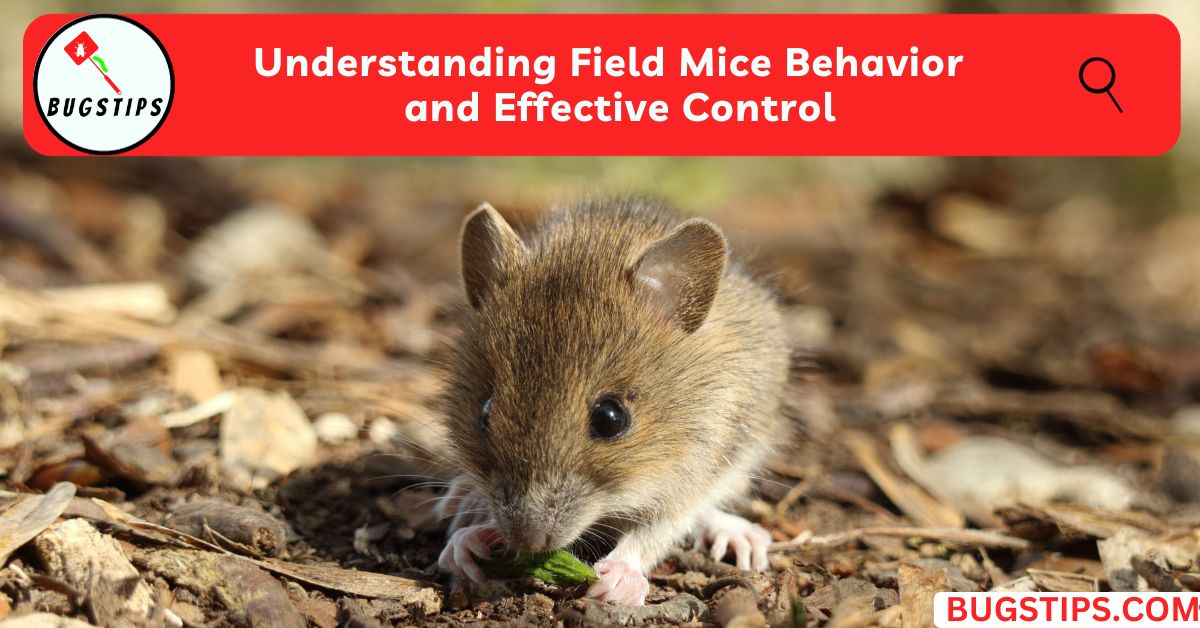This post may contain affiliate links which means as an Amazon Associate, this site may earn a small commission on qualified purchases made through links at no extra cost to you. Learn more on Affiliate Disclosure
If you’ve noticed tiny yellow or light brown ants invading your kitchen lately, you’re likely dealing with grease ants.
Grease ants can be incredibly difficult to get rid of once they find their way into your home.
But don’t worry – in this article, I’ll tell you everything you need to know to kick these pesky grease ants to the curb once and for all.
We’ll talk about exactly what grease ants look like, why they’re attracted to your house, and most importantly – how to destroy them and prevent them from coming back.
No one wants to be constantly wiping away ant trails left by these sly yellow insects. With some determination and the right techniques, you can eliminate your grease ant problem.
Stick with me, and I’ll share all my best tips and tricks for getting rid of these pesky ants from your kitchen for good. Let’s do this!
What Are Grease Ants?

Grease ants are a tiny ant species that gets its name from its affinity for oils and fats.
Despite their small size, measuring only 1/32 to 1/20 of an inch, these ants can be a huge nuisance in your home.
You may also hear grease ants referred to as thief ants due to their habit of “stealing” small particles of food from your kitchen.
They aren’t interested in sweets – instead, these ants are attracted to proteins and fatty foods like meats, nuts, and cheeses.
Grease ants are pale yellow to light brown in color, and they move very erratically in a start-stop motion instead of marching in neat lines.
This makes them excellent at sneaking into tiny cracks and crevices that other ants can’t access.
You May Also Like – Do Ants Poop?
Why Do I Have Grease Ants In My House?
As we talked about earlier, grease ants are attracted to fats and oils.
So why do they end up sneaking into our homes so often? There are a few key reasons these ants may be drawn inside your house:
Grease ants will come inside in search of food sources like meats, nuts, seeds, cheeses, and other fatty foods.
Any leftovers or spills containing proteins and oils will attract them. They are especially drawn to moist, decaying foods since these provide both food and water.
Another attraction is moist areas in your home. Leaky faucets, pipes, or any source of water can lure grease ants inside.
They need water to survive, so damp areas are ideal living spaces.
Kitchens are prime real estate for grease ants due to greasy stovetops, countertops, sinks, and spills that provide the fatty substances they love.
Areas where oil accumulates or splatters when cooking are like an open invitation.
Finally, trash bins containing food waste are a huge grease ant magnet. The ants are attracted to the smells and oils secreted by food scraps and leftovers tossed in the garbage. Sticky, dirty bins provide food and shelter.
Related Article – 14 Small Tiny Brown Bugs In The House
Are Grease Ants Harmful?
While grease ants don’t pose an imminent danger to humans like some other ant species, they can still be considered pests that you don’t want taking up residence in your home.
Here’s a quick rundown of how problematic grease ants can be.
The main risk with grease ants is that they can contaminate surfaces, food, and belongings as they forage.
Though they don’t bite or sting, grease ants can transmit diseases and bacteria as they crawl along.
Finding long trails of ants near food preparation areas or surfaces where you place food is concerning.
Grease ants also produce a thin, clear, and sticky secretion as they move.
This substance can promote mold growth and leave unsightly trails along walls, floors, countertops, and more.
The accumulation of this secretion may also lead to a pungent, sweet, and musky odor over time.
Rotting food that the ants drag along adds to unpleasant smells.
While grease ants pose no direct danger, their presence raises concerns about sanitation and hygiene.
Their habit of invading kitchens and other food zones makes them a nuisance you’ll want to get rid of.
Related Article – Do Ants Like Honey? The Sweet Truth
What is the Difference Between Sugar Ants and Grease Ants?
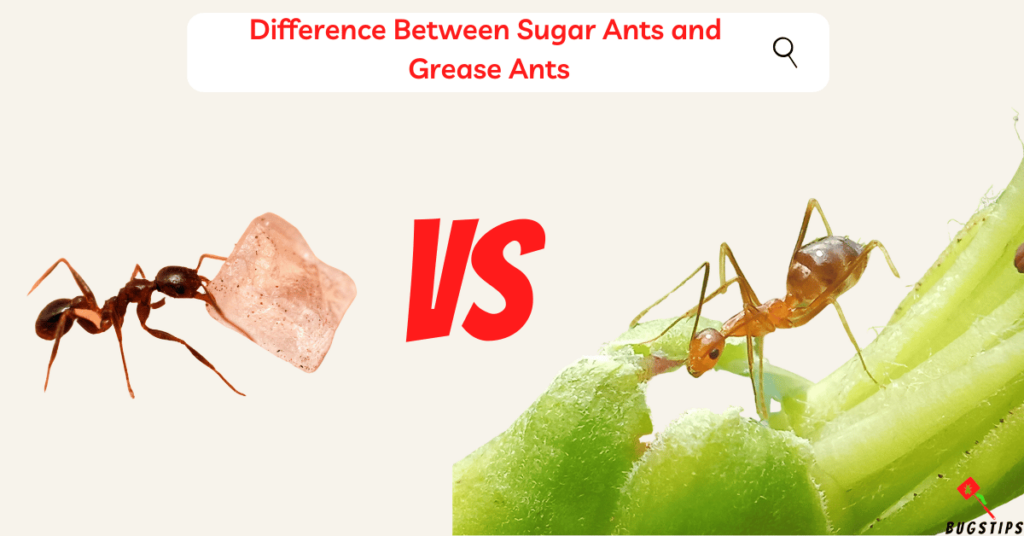
At a glance, sugar ants and grease ants appear quite similar – they are both very small ants that invade homes in search of food.
But there are some key differences between these two common ant species.
| Sugar Ants | Grease Ants | |
| Also known as: | Pavement Ants | Thief Ants |
| Attracted to: | Sugary foods like honey, fruit, syrup | Fatty foods like meats, nuts, cheese |
| Bait preference: | Sugar-based | Protein-based |
| Trail location: | Often outdoors, in warmer months | Indoors, in kitchens and food zones |
| Size: | About 1/8 inch long | 1/32 to 1/20 inches long |
As you can see, the main differences come down to the foods they are attracted to and what types of bait will be effective at killing them.
Identifying if you have sugar ants or grease ants will allow you to tailor your baiting strategy accordingly.
You May Also Like – 12 Tiny Black Bugs on Window Sill
How to Get Rid of Grease Ants
Now that you know what attracts grease ants and why they can be a nuisance, let’s talk about how to get rid of them!
When dealing with a grease ant infestation, you have two main options – using commercial ant baits or trying some homemade remedies.
Both can be effective when used properly. Here’s an overview of your grease ant elimination strategies.
Commercial Ant Baits
- Ant baits that contain borax or boric acid as the active ingredient are very effective at killing grease ants.
- These baits come in liquid, gel, or solid granule form.
- The ants ingest the bait and bring it back to the nest to share, killing off the entire colony.
- Place small amounts of bait along foraging trails in kitchens, bathrooms, and other areas where grease ants are spotted.
Home Remedies for Grease Ants
If you want to take a more natural approach, there are several DIY methods you can try.
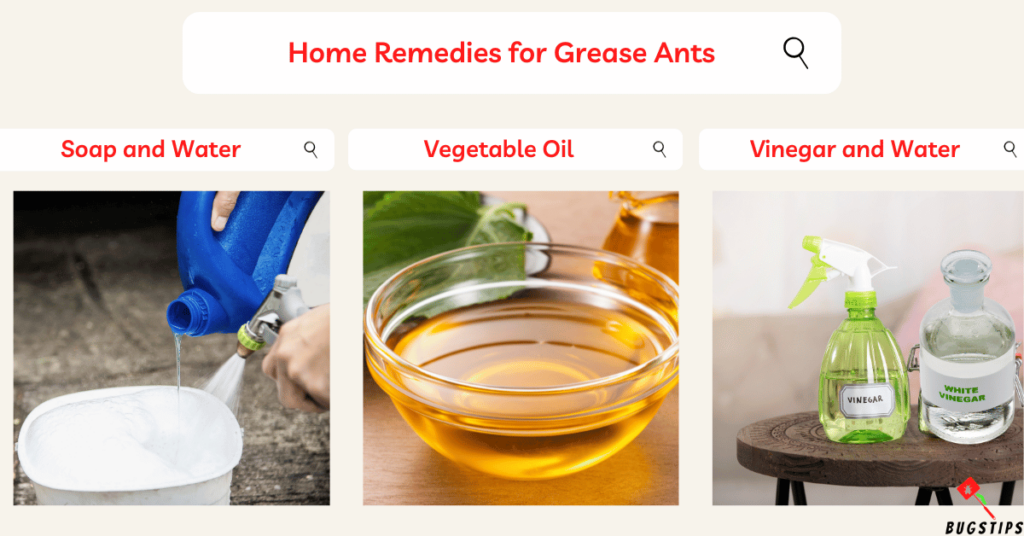
Soap and Water
- Mix dish soap with water and use it to scrub down countertops, floors, cabinets, and other surfaces to eliminate grease ant’s pheromone trails.
- Disrupting the scent trails they follow will prevent more ants from being recruited to that area.
Vegetable Oil
- Coat door thresholds, windowsills, and other entry points with a thin layer of vegetable oil to prevent ants from getting inside.
- The oil disables the scent trails grease ants follow.
- Reapply the oil frequently to maintain the barrier.
Vinegar and Water
- Create a 50/50 mixture of white vinegar and water in a spray bottle.
- Spray counters, appliances, cabinets, and anywhere else you see grease ants or their trails to remove food residue they may be attracted to.
- Vinegar also kills ants on contact.

Peanut Butter and Borax
- Mix borax powder into peanut butter to create a high-protein bait that grease ants can’t resist.
- Place spoonfuls of the mixture where you see ants.
- They’ll ingest the borax and die off.
Peppermint Oil
- Apply pure peppermint oil along entry points like windows, doors, and foundation cracks.
- Grease ants detest the strong minty smell and will avoid areas where it’s applied.
Related Article – Get Rid of Ants in Dishwasher
Pie Dough Mixture
This is one of my personal favorite homemade remedies for grease ants. It’s very simple – just mix together some basic ingredients to create a fatal trap for the ants.
Here’s what you’ll need.
- All-purpose flour
- Solid vegetable shortening
- A bowl
- A spoon
I like to use a 1:1 ratio of flour and shortening. Start by scooping around 1/4 cup of shortening into the bowl.
Then add 1/4 cup of flour and mix it together thoroughly with the spoon.
You want the consistency to be dense and thick, like pie dough. Add a touch more flour or shortening as needed until you get the right texture.
It should be dry enough that it doesn’t smear, but sticky enough to trap ants.
Next, take small spoonfuls of the dough mixture and place them anywhere you’ve noticed grease ants active or trailing through.
Focus on placing the bait along their pathways and entry points.
As the ants march through, their legs and bodies will become encased in the thick, sticky dough. Immobilized and unable to free themselves, the trapped ants will die off.
It might take some trial and error to get the perfect consistency, but this paste is an effective and affordable homemade trap for controlling grease ant invasions.
Related Article – How To Get Rid Of Ants In Closet
Final Thoughts
Dealing with a grease ant infestation can be frustrating, but with the right techniques, you can eliminate these pests from your home.
First, address what might be attracting ants inside through good cleaning habits and proper food storage.
Tightly seal all food, wipe up spills quickly, and take out the trash regularly. Fix any water leaks and clean greasy surfaces around the kitchen.
Use a combination of ant baits and homemade remedies focused on breaking up ant trails and preventing entry.
Apply solutions like vinegar, oil, and peppermint along crawl spaces, windows, and doors. Target high-traffic areas indoors with ant killer baits.
With some diligent effort to cut off their food sources and disrupt grease ant pathways into your home, you can kick these pesky insects to the curb.
With the right techniques, you can protect your kitchen and home from future ant invasions.
FAQs
What does a grease ant look like?
Grease ants are tiny, measuring 1/32 to 1/20 inches long. They are pale yellow to light brown in color with a greasy, shiny appearance.
Do grease ants smell?
Grease ants themselves are odorless. But their sweet, sticky secretions and rotten food debris can create unpleasant odors over time.
Do grease ants bite?
No, grease ants do not bite or sting. They are not aggressive toward humans.
How to kill grease ants?
Use ant baits, eliminate food sources, clean with soap and water, wipe down surfaces with vinegar, apply vegetable oil to entry points, and place borax paste or sticky dough in problem areas.
Resources – (for further reading)
Iowa State University – Grease Ant
Wikipedia – Solenopsis molesta

